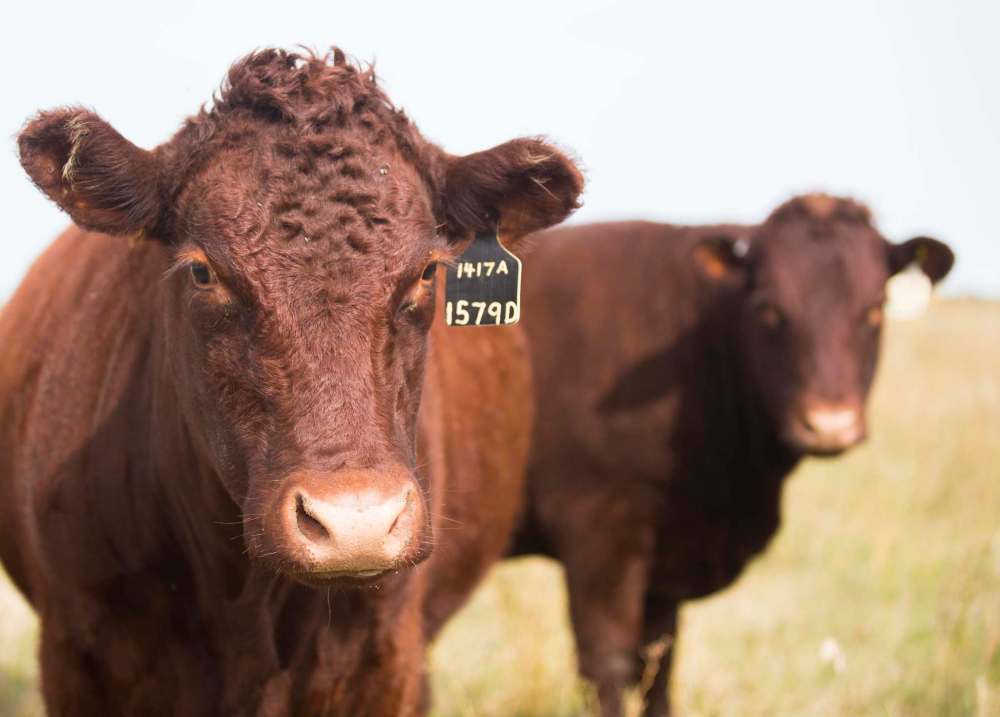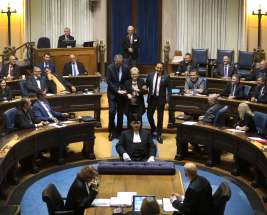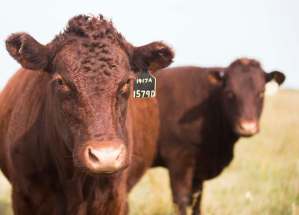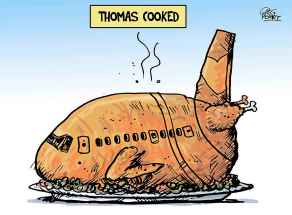Province stepping-up to assist cattle producers: minister
Read this article for free:
or
Already have an account? Log in here »
To continue reading, please subscribe:
Monthly Digital Subscription
$0 for the first 4 weeks*
- Enjoy unlimited reading on winnipegfreepress.com
- Read the E-Edition, our digital replica newspaper
- Access News Break, our award-winning app
- Play interactive puzzles
*No charge for 4 weeks then price increases to the regular rate of $19.00 plus GST every four weeks. Offer available to new and qualified returning subscribers only. Cancel any time.
Monthly Digital Subscription
$4.75/week*
- Enjoy unlimited reading on winnipegfreepress.com
- Read the E-Edition, our digital replica newspaper
- Access News Break, our award-winning app
- Play interactive puzzles
*Billed as $19 plus GST every four weeks. Cancel any time.
To continue reading, please subscribe:
Add Free Press access to your Brandon Sun subscription for only an additional
$1 for the first 4 weeks*
*Your next subscription payment will increase by $1.00 and you will be charged $16.99 plus GST for four weeks. After four weeks, your payment will increase to $23.99 plus GST every four weeks.
Read unlimited articles for free today:
or
Already have an account? Log in here »
Hey there, time traveller!
This article was published 30/09/2019 (2265 days ago), so information in it may no longer be current.
Steps are being taken to help cattle producers feeling the effects of a long, dry summer, Manitoba’s agriculture minister says.
Twelve rural municipalities — mostly in the Interlake and Parklands regions — declared a state of agricultural emergency after drought prevented farmers from producing enough hay to feed their cattle. Costs to transport hay for livestock or drill additional wells for water added up, and some producers had to look at selling their livestock.
In the wake, the province is taking immediate and long-term steps to help, Ralph Eichler said during a conference call Monday.

Struggling cattle producers from the drought-stricken areas can apply to the Manitoba Agricultural Services Corporation to defer loan payments for six months with deferrals up to a year. They can also get some relief on loans to buy breeding stock and to purchase calves that are repayable when when the animal is sold, Eichler said.
The province asked MASC to work with beef producers in the affected municipalities to identify lending options, including payment deferrals, that would assist them in managing cash flow, a spokeswoman for Eichler said Monday.
The summertime drought that hit cattle producers was followed by recent heavy rains that left farmers fighting to get their crops off the field.
“It has been a struggle,” Eichler said Monday. Close to 60 per cent of Manitoba’s crop is off, with around 40 per cent yet to be harvested.
More rain on the way

Winnipeg could be on track for a historically rainy September, according to Environment Canada.
The city’s record rainfall for September was 156.2 millimetres in 1872, said Natalie Hasell, a warning preparedness meteorologist with Environment Canada. That record is followed by 149.6 mm of rain in September 1941, and 148.2 mm in September 1977.
Winnipeg could be on track for a historically rainy September, according to Environment Canada.
The city’s record rainfall for September was 156.2 millimetres in 1872, said Natalie Hasell, a warning preparedness meteorologist with Environment Canada. That record is followed by 149.6 mm of rain in September 1941, and 148.2 mm in September 1977.
By the end of Sunday, Hasell said Winnipeg had received 140.7 mm of rain. Another 11.8 mm of rain had fallen as of late Monday afternoon, bringing the total to at least 152.5 mm.
“But I don’t think we’ve had enough to beat the 1872 (record), so it’s not an all-time record for September,” said Hasell.
“I don’t know if it’s going to going to stop raining soon, but radar imagery would suggest that it’s not going to, that we should still see some precipitation after this point today.”
From Sept. 21 to 23, swaths of the province were pelted with more than 100 millimetres of rain. Brandon normally averages around 44 mm in the entire month of September, according to 30 years of data from Environment and Climate Change Canada, but over the course of less than three days, received as much as 122 mm.
In Zhoda, 90 kilometres southeast of Winnipeg, 144 mm of rain was recorded, leading the province.
“Farmers are resilient — they’re used to it,” said Eichler. “They find ways to get a crop off, and we hope they do.”
And if they don’t?
“We have to make sure we have programs in place,” the minister said.
Weather extremes, volatile markets and trade issues are highlighting the need for established programs to change, Keystone Agricultural Producers president Bill Campbell said Monday, adding he thinks the province is on the right track.
“It’s positive they’ve acknowledged the limitations of forage and marketing programs, and the problems that the Interlake area has received,” said Campbell.
The business risk-management programs that help farmers manage significant risks threatening the viability of their businesses are covered by the Canadian Agricultural Partnership, a five-year, $3-billion investment by federal and provincial governments to strengthen the agriculture and agri-food sector.
Consultations with the province and the federal government to revamp the programs have been postponed first by the Manitoba provincial election, and now the federal election, said Campbell, who hopes the talks can resume soon after the Oct. 21 national vote.
“There needs to be some retooling for the programs,” he said.
In a statement, Manitoba Beef Producers general manager Carson Callum said it was “useful that the Manitoba government is looking at the various programs and tools available to beef producers, such as loans and advance payments, to see if there are ways to adjust them to make them more responsive to the industry’s needs during this very challenging period.”
“Individual producers will need to assess these changes and determine how they could potentially help their operations,” said Callum.
carol.sanders@freepress.mb.ca

Our newsroom depends on a growing audience of readers to power our journalism. If you are not a paid reader, please consider becoming a subscriber.
Our newsroom depends on its audience of readers to power our journalism. Thank you for your support.









